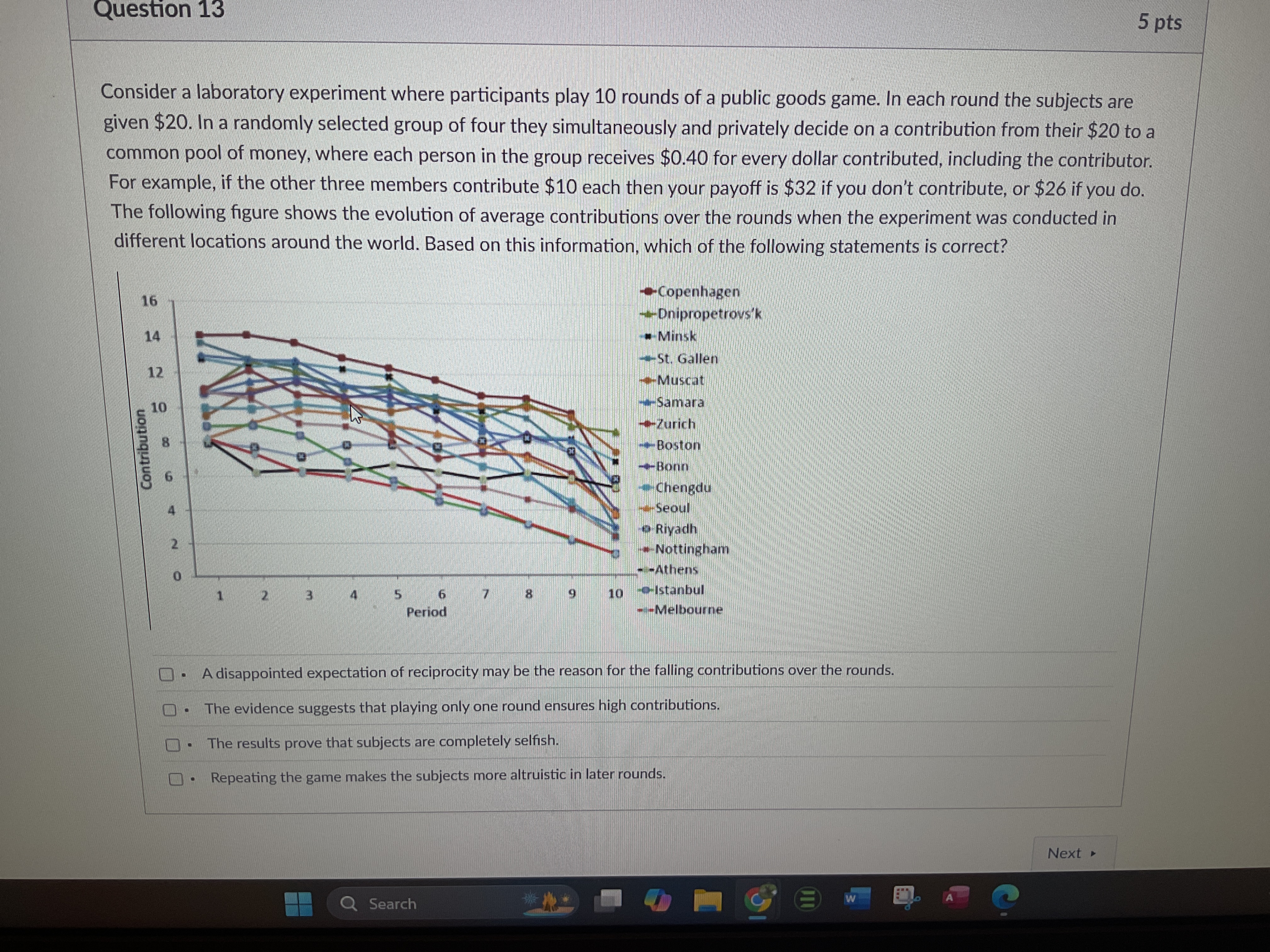Consider a laboratory experiment where participants play 10 rounds of a public goods game. In each round the subjects are given $20. Based on the information provided, which of the... Consider a laboratory experiment where participants play 10 rounds of a public goods game. In each round the subjects are given $20. Based on the information provided, which of the following statements is correct?

Understand the Problem
The question describes a public goods game experiment and asks which statement is correct based on the data presented in a graph showing average contributions over different periods and locations. It involves interpreting the results of the experiment and understanding the underlying social dynamics.
Answer
A disappointed expectation of reciprocity may be the reason for the falling contributions over the rounds.
The correct statement is: A disappointed expectation of reciprocity may be the reason for the falling contributions over the rounds.
Answer for screen readers
The correct statement is: A disappointed expectation of reciprocity may be the reason for the falling contributions over the rounds.
More Information
In public goods games, participants often reduce their contributions over time if they perceive others are not contributing, due to unmet expectations of reciprocity.
Tips
A common mistake is assuming altruism increases with repetition; however, without reciprocity, contributions typically decline.
Sources
- Public goods game - Wikipedia - en.wikipedia.org
AI-generated content may contain errors. Please verify critical information